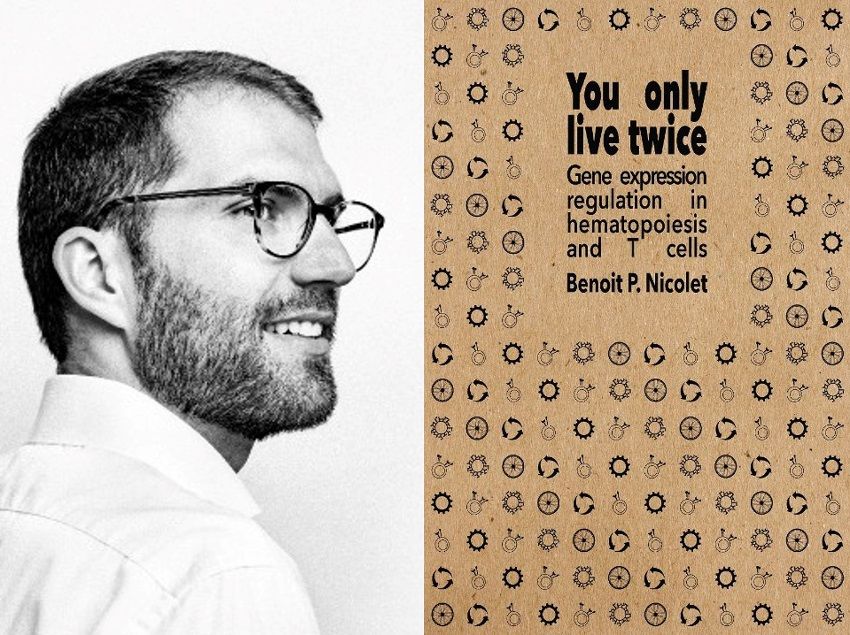Gene expression regulation in hematopoiesis and T cells
You only live twice News
On 3 September 2020 (14:00) Benoit Nicolet will defend his PhD thesis 'You only live twice: gene expression regulation in hematopoiesis and T cells' at the University of Amsterdam. Nicolet shows in his PhD thesis that T cell gene expression regulation is key to understand the function, and its implication for T cells immune-therapies and vaccines.
He developed several methods to identify and study the effector function of T cells. We used transcriptome and proteome analysis to uncover CD29 (β1 integrin; ITGB1), a cellular marker which identify CD8+ T cells that preferentially produce cytotoxic molecules, such as interferon-ɣ. The expression of CD29+ T cell gene signature in melanoma patients associated with better overall survival, especially in patients with high CD8+ infiltrates.
Nicolet studied how these effector function of CD8+ T cells are regulated by developing Flow-FISH a method allowing the simultaneous measurement of mRNA and protein of individual gene products at a single-cell level in a high throughput manner. There he found that mRNA protein measurements are key to understand T cell effector function regulation. This led him to investigate the global relationship between mRNA and protein expression in human CD8+ T cells during differentiation and upon activation, using deep transcriptome sequencing and mass-spectrometry.
Circular RNA
The second part of his thesis focuses on circular RNA (circRNA), a novel kind of non-coding RNA. Nicolet investigated the circRNA expression in the hematopoietic system, thus far unknown, and found a cell-type specific, abundant, circRNA expression throughout hematopoiesis. Red blood cells and platelets expressed the highest levels circRNA levels and the highest diversity. He further characterized the functionality of circRNA in terminal hematopoiesis using a multi-omics approach.

